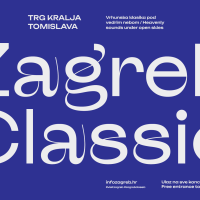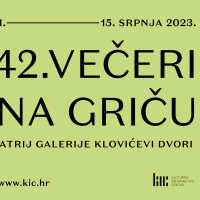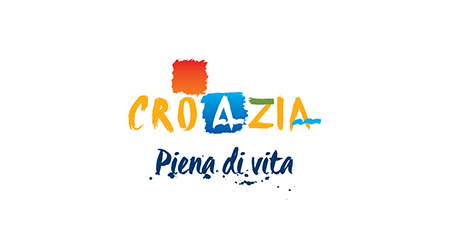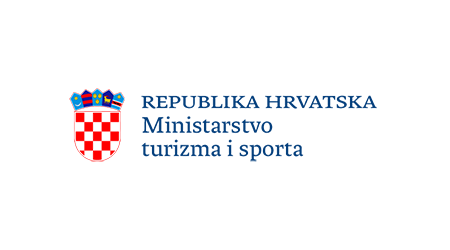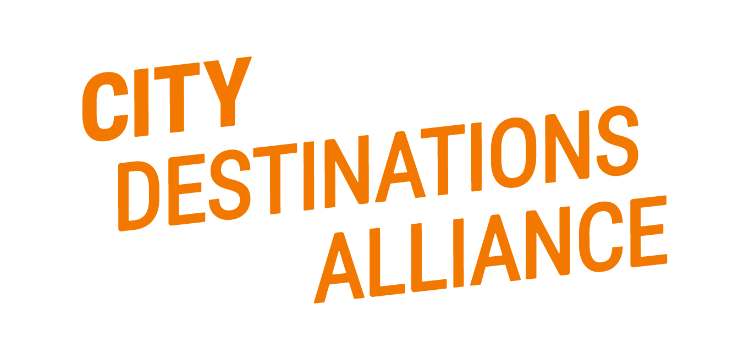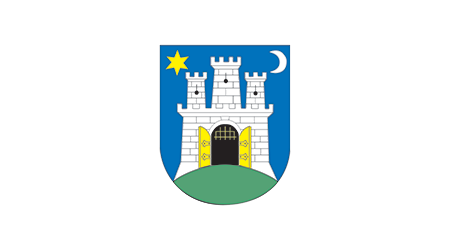Temporary ban and restrictions on Republic of Croatia border crossings
Republic of Croatia Civil Protection Authority has issued an order on temporary ban and restrictions on Republic of Croatia border crossings.
Passengers travelling to the Republic of Croatia from an EU / EEA member state
Passengers coming directly from the countries and/or regions of the European Union, i.e. countries and/or regions of the Schengen area and Schengen associated countries, regardless of their citizenship, will be allowed entry into the Republic of Croatia if they possess a valid EU Digital COVID Certificate.
Exceptionally, passengers arriving directly from the countries and/or regions of the European Union, i.e. countries and/or regions of the Schengen area and Schengen associated countries, who do not yet possess an EU Digital COVID Certificate, will be allowed entry into the Republic of Croatia if they have the following:
- negative PCR test result or rapid antigen test result - RAT for SARS-CoV-2, where the RAT test must be listed in the Common list of rapid antigen tests recognized by the Member States of the European Union, published by the European Commission. If the RAT test results were made abroad, the manufacturer and/or the commercial name of the test must be visible. Otherwise, it will not be accepted as credible for entering the Republic of Croatia. The PCR test result must not be older than 72 hours and the RAT test result must not be older than 48 hours, counting from the time the test was taken until the arrival at the border crossing point;
- certificate that they have received two doses of vaccine used in the EU Member States (Pfizer, Moderna, AstaZeneca, Gamaleya, Sinopharm) or vaccines approved by the World Health Organization for emergency use (Serum Institute of India - Covishield, Bharat Biotech - Covaxin, Sinovac - CoronaVac) not older than 365 days, or a certificate that they have received one dose of the vaccine if the vaccine is administered in a single dose (Janssen/Johnson&Johnson) not older than 365 days, provided that 14 days have passed since they received the single dose;
- certificate showing that they have received the first dose of the Pfizer, Moderna or Gamaleya vaccine, on the basis of which they can enter the Republic of Croatia in the period of 22 to 42 days from receiving the vaccine, or 22 to 84 days from receiving the first dose of the AstraZeneca vaccine;
- certificate showing that they have recovered from COVID-19 and have received one dose of vaccine used in EU Member States (Pfizer, Moderna, AstaZeneca, Gamaleya, Sinopharm within eight months from contracting the disease, provided that the vaccine was administered less than 356 days from their arrival at the border crossing point;
- positive PCR test result or rapid antigen test result, confirming that the holder recovered from the SARS-CoV-2 virus infection, which was performed in the previous 365 days and which is older than 11 days from the date of arrival at the border crossing point, or a medical certificate of recovery;
- or if they perform PCR testing or rapid antigen testing - RAT for SARS-CoV-2 immediately upon their arrival in the Republic of Croatia (at their own expense), with the obligation to stay in self-isolation until they obtain a negative test result. In case they cannot get tested, they have to self-isolate for ten (10) days.
The following categories are exempt from possessing a valid EU Digital COVID Certificate or from the abovementioned obligations:
- workers or self-employed persons performing essential tasks, including healthcare workers, frontier and posted workers and seasonal workers as specified in the Guidelines concerning the exercise of the free movement of workers during COVID-19 outbreak;
- pupils, students and interns
- seafarers and workers in the transport sector or transport service providers, including heavy goods vehicle drivers transporting goods to be used in the national territory and those in transit only;
- diplomats, staff of international organizations and persons invited by international organizations and whose physical presence is necessary for the functioning of those organizations, military personnel and police officers, as well as humanitarian and civil protection personnel in the performance of their duties;
- persons traveling for family or business reasons, including journalists in the performance of their duties;
- passengers in transit with the obligation to leave the Republic of Croatia within 12 hours from entry;
- patients traveling for health reasons.
The provisions regarding frontier workers apply adequately to other categories of passengers who, due to the nature of their job or occupation, need to cross the state border frequently (e.g. athletes playing for clubs in a neighbouring country).
Passengers who represent one of the previously mentioned exceptions are obliged to present credible documentation upon entering the Republic of Croatia in order to prove the reasons for the exemption.
Citizens of EU / EEA member states as well as members of their families traveling to the Republic of Croatia from third countries, i.e. those that are not members of the EU / EEA
Citizens of EU Member States (including Croatian citizens), i.e. Schengen Member States and Schengen associated countries, as well as members of their families and third-country nationals who are long-term residents under Council Directive 2003/109/EC of 25 November 2003 concerning the status of third-country nationals who are long-term residents and persons entitled to reside under other EU directives or national law or who have national long-term visas and are coming from third countries, must present a valid EU Digital COVID Certificate when entering the Republic of Croatia.
Exceptionally, the abovementioned category of passengers who do not yet possess an EU Digital COVID Certificate will be allowed entry into the Republic of Croatia if they have the following:
- negative PCR test result or rapid antigen test result - RAT for SARS-CoV-2, where the RAT test must be listed in the Common list of rapid antigen tests recognized by the Member States of the European Union, published by the European Commission. If the RAT test results were made abroad, the manufacturer and/or the commercial name of the test must be visible. Otherwise, it will not be accepted as credible for entering the Republic of Croatia. The PCR test result must not be older than 72 hours and the RAT test result must not be older than 48 hours, counting from the time the test was taken until the arrival at the border crossing point;
- certificate that they have received two doses of vaccine used in the EU Member States (Pfizer, Moderna, AstaZeneca, Gamaleya, Sinopharm) or vaccines approved by the World Health Organization for emergency use (Serum Institute of India - Covishield, Bharat Biotech - Covaxin, Sinovac - CoronaVac) not older than 365 days, or a certificate that they have received one dose of the vaccine if the vaccine is administered in a single dose (Janssen/Johnson&Johnson) not older than 365 days, provided that 14 days have passed since they received the single dose;
- certificate showing that they have received the first dose of the Pfizer, Moderna or Gamaleya vaccine, on the basis of which they can enter the Republic of Croatia in the period of 22 to 42 days from receiving the vaccine, or 22 to 84 days from receiving the first dose of the AstraZeneca vaccine.
- certificate showing that they have recovered from COVID-19 and have received one dose of vaccine within eight months from contracting the disease, provided that the vaccine was administered less than 12 months from their arrival at the border crossing point;
- positive PCR test result or rapid antigen test result, confirming that the holder recovered from the SARS-CoV-2 virus infection, which was performed in the previous 365 days and which is older than 11 days from the date of arrival at the border crossing point, or a medical certificate of recovery;
- or if they perform PCR testing or rapid antigen testing - RAT for SARS-CoV-2 immediately upon their arrival in the Republic of Croatia (at their own expense), with the obligation to stay in self-isolation until they obtain a negative test result. In case they cannot get tested, they have to self-isolate for ten (10) days.
The following categories are exempt from possessing a valid EU Digital COVID Certificate or from the abovementioned obligations:
- healthcare workers, health researchers and caregivers for the elderly;
- frontier workers;
- workers in the transport sector;
- diplomats, staff of international organizations and persons invited by international organizations and whose physical presence is necessary for the functioning of those organizations, military personnel and police officers, as well as humanitarian and civil protection personnel in the performance of their duties;
- passengers in transit, with the obligation to leave the Republic of Croatia within 12 hours from entering;
- persons travelling for study purposes;
- passengers travelling for personal / family or business reasons or some other economic reason and do not stay in or out of Croatia longer than 12 hours.
Persons who represent one of the previously mentioned exceptions are obliged to present credible documentation upon entering the Republic of Croatia in order to prove the reasons for exemption from having one of the above-mentioned tests / having to self-isolate.
Third-country nationals
Third-country nationals who are not family members of citizens of Schengen Member States and Schengen Associated States nor are long-term residents under Council Directive 2003/109/EC of 25 November 2003 concerning the status of third-country nationals who are long-term residents and persons entitled to reside under other EU directives or national law or who have national long-term visas, apart from persons referred to in point 1 of this Decision will be granted entry in the Republic of Croatia only in cases of necessary travel.
Exceptions to the above-mentioned necessary travel are the following categories:
1. healthcare workers, health researchers and caregivers for the elderly;
2. frontier workers;
3. workers in the transport sector;
4. diplomats, staff of international organizations and persons invited by international organizations and whose physical presence is necessary for the functioning of those organizations, military personnel and police officers, as well as humanitarian and civil protection personnel in the performance of their duties;
5. passengers in transit, with the obligation to leave the Republic of Croatia within 12 hours from entering;
6. persons travelling for study purposes;
7. seafarers who intend to stay in the Republic of Croatia for longer than 12 hours. They will be allowed entry if they have the following:
- negative PCR test result not older than 72 hours from the moment of testing, or rapid antigen test result - RAT for SARS-CoV-2 that is included in the Common list of rapid antigen tests recognized by the Member States of the European Union, published by the European Commission, provided that the test result is not older than 48 hours from the moment of testing to the moment of arrival at the border crossing point
- certificate not older than 365 days of receipt of two doses of vaccine used in EU Member States (Pfizer, Moderna, AstaZeneca, Gamaleya, Sinopharm) or vaccines approved by the World Health Organization for emergency use (Serum Institute of India - Covishield, Bharat Biotech - Covaxin, Sinovac - CoronaVac) or presentation of a certificate not older than 365 days of receipt one dose of vaccine received in one dose (Janssen / Johnson & Johnson) if 14 days have passed since receiving that one dose;
- certificate showing that they have recovered from COVID-19 and have received one dose of vaccine used in EU Member States (Pfizer, Moderna, AstaZeneca, Gamaleya, Sinopharm within eight months from contracting the disease, provided that the vaccine was administered less than 356 days from their arrival at the border crossing point;
- a positive PCR or rapid antigen test result, referred to in paragraph III, item 1, subitem 1 of the said Decision, confirming that the holder recovered from the SARS-CoV-2 virus infection, which was performed in the previous 365 days, and which is older than 11 days from the date of arrival at the border crossing point, or a certificate of recovery from COVID-19 issued by a physician;
- or they will be imposed self-isolation upon arriving in the Republic of Croatia with a possibility of getting a PCR test or rapid antigen test for SARS-CoV-2 and if they cannot get tested, they have to self-isolate for a total of 10 days.
8. persons who travel for tourist reasons and have a certificate of reservation or paid accommodation in a hotel, camp, private renter or rented vessel and other form of tourist accommodation or are owners of houses or vessels in the Republic of Croatia - entry into the Republic of Croatia will be allowed upon presentation of one of the following documents:
- negative PCR test result not older than 72 hours from the moment of testing, or rapid antigen test result - RAT for SARS-CoV-2 that is included in the Common list of rapid antigen tests recognized by the Member States of the European Union, published by the European Commission, provided that the test result is not older than 48 hours from the moment of testing to the moment of arrival at the border crossing point
- certificate not older than 365 days of receipt of two doses of vaccine used in EU Member States (Pfizer, Moderna, AstaZeneca, Gamaleya, Sinopharm) or vaccines approved by the World Health Organization for emergency use (Serum Institute of India - Covishield, Bharat Biotech - Covaxin, Sinovac - CoronaVac) or presentation of a certificate not older than 365 days of receipt one dose of vaccine received in one dose (Janssen / Johnson & Johnson) if 14 days have passed since receiving that one dose;
- certificate showing that they have recovered from COVID-19 and have received one dose of vaccine used in EU Member States (Pfizer, Moderna, AstaZeneca, Gamaleya, Sinopharm within eight months from contracting the disease, provided that the vaccine was administered less than 356 days from their arrival at the border crossing point;
- a positive PCR or rapid antigen test result, referred to in paragraph III, item 1, subitem 1 of the said Decision, confirming that the holder recovered from the SARS-CoV-2 virus infection, which was performed in the previous 365 days, and which is older than 11 days from the date of arrival at the border crossing point, or a certificate of recovery from COVID-19 issued by a physician
- or they will be imposed self-isolation upon arriving in the Republic of Croatia with a possibility of getting a PCR test or rapid antigen test for SARS-CoV-2 and if they cannot get tested, they have to self-isolate for a total of 10 days.
9. persons traveling for personal / family or business reasons, or who have other economic interest (if they intend to stay in the Republic of Croatia longer than 12 hours) will be allowed to enter the Republic of Croatia upon presentation of one of the following documents:
- negative PCR test result not older than 72 hours from the moment of testing, or rapid antigen test result - RAT for SARS-CoV-2 that is included in the Common list of rapid antigen tests recognized by the Member States of the European Union, published by the European Commission, provided that the test result is not older than 48 hours from the moment of testing to the moment of arrival at the border crossing point
- certificate not older than 365 days of receipt of two doses of vaccine used in EU Member States (Pfizer, Moderna, AstaZeneca, Gamaleya, Sinopharm) or vaccines approved by the World Health Organization for emergency use (Serum Institute of India - Covishield, Bharat Biotech - Covaxin, Sinovac - CoronaVac) or presentation of a certificate not older than 365 days of receipt one dose of vaccine received in one dose (Janssen / Johnson & Johnson) if 14 days have passed since receiving that one dose;
- certificate showing that they have recovered from COVID-19 and have received one dose of vaccine used in EU Member States (Pfizer, Moderna, AstaZeneca, Gamaleya, Sinopharm within eight months from contracting the disease, provided that the vaccine was administered less than 356 days from their arrival at the border crossing point;
- a positive PCR or rapid antigen test result, referred to in paragraph III, item 1, subitem 1 of the said Decision, confirming that the holder recovered from the SARS-CoV-2 virus infection, which was performed in the previous 365 days, and which is older than 11 days from the date of arrival at the border crossing point, or a certificate of recovery from COVID-19 issued by a physician
- or they will be imposed self-isolation upon arriving in the Republic of Croatia with a possibility of getting a PCR test or rapid antigen test for SARS-CoV-2 and if they cannot get tested, they have to self-isolate for a total of 10 days.
10. persons for whom a positive decision of the competent authority has been made, based on their application for residence / work, including digital nomads will be allowed to enter the Republic of Croatia upon presentation of one of the following documents:
- negative PCR test result not older than 72 hours from the moment of testing, or rapid antigen test result - RAT for SARS-CoV-2 that is included in the Common list of rapid antigen tests recognized by the Member States of the European Union, published by the European Commission, provided that the test result is not older than 48 hours from the moment of testing to the moment of arrival at the border crossing point
- certificate not older than 365 days of receipt of two doses of vaccine used in EU Member States (Pfizer, Moderna, AstaZeneca, Gamaleya, Sinopharm) or vaccines approved by the World Health Organization for emergency use (Serum Institute of India - Covishield, Bharat Biotech - Covaxin, Sinovac - CoronaVac) or presentation of a certificate not older than 365 days of receipt one dose of vaccine received in one dose (Janssen / Johnson & Johnson) if 14 days have passed since receiving that one dose;
- certificate showing that they have recovered from COVID-19 and have received one dose of vaccine used in EU Member States (Pfizer, Moderna, AstaZeneca, Gamaleya, Sinopharm within eight months from contracting the disease, provided that the vaccine was administered less than 356 days from their arrival at the border crossing point;
- a positive PCR or rapid antigen test result, referred to in paragraph III, item 1, subitem 1 of the said Decision, confirming that the holder recovered from the SARS-CoV-2 virus infection, which was performed in the previous 365 days, and which is older than 11 days from the date of arrival at the border crossing point, or a certificate of recovery from COVID-19 issued by a physician
- or they will be imposed self-isolation upon arriving in the Republic of Croatia with a possibility of getting a PCR test or rapid antigen test for SARS-CoV-2 and if they cannot get tested, they have to self-isolate for a total of 10 days.
Passengers who represent one of the previously mentioned exceptions are obliged to present credible documentation upon entering the Republic of Croatia in order to prove the reasons for the exemption of having one of the stated test results / having to self-isolate.
Pursuant to the Decision passengers (regardless of their citizenship) who arrive from the Republic of South Africa, Botswana, the Kingdom of Eswatini, Lesotho, Namibia, Zimbabwe and Republic of Mozambique or who stayed in those countries in the last 14 days are not allowed to enter the Republic of Croatia.
Exceptionally, for the citizens of the Republic of Croatia, as well as their family members and third-country nationals who are long-term residents on the basis of Council Directive 2003/109/EC of 25 November 2003 concerning the status of third-country nationals who are long-term residents and persons who have the right to stay on the basis of other EU directives or national legislation in the Republic of Croatia or who have national long-term visas for the Republic of Croatia and who arrive from the countries referred to in paragraph 1 of this item, mandatory quarantine of 14 days from the date of entering the Republic of Croatia and mandatory testing for SARS-CoV-2 virus on the last day of quarantine are introduced. Also, according to the Instructions of the Croatian Institute of Public Health, they must take a PCR test immediately after entering the Republic of Croatia, that is, at the beginning of their quarantine. Proof of recovery and vaccination does not exempt travellers from those countries from the obligation to get tested and quarantine
Passengers from the countries covered by the list of countries of the Croatian Institute of Public Health to which special epidemiological measures apply
The Croatian Institute of Public Health on its website publishes a list of countries to which special epidemiological measures are applied.
Passengers covered by Annex I to Council Recommendation (EU) of 1st December 2021 amending Recommendation (EU) 2020/912 on the temporary restriction on non-essential travel into the EU and the possible lifting of such restriction
Passengers (regardless of their citizenship) coming directly from countries covered by the currently valid amendments to COUNCIL RECOMMENDATION (EU) of 1st December 2021 amending Recommendation (EU) 2020/912 on the temporary restriction on non-essential travel into the EU and the possible lifting of such restriction, can travel to the Republic of Croatia without having to prove or justify their reasons for travel if they meet the abovementioned epidemiological conditions for entry into the Republic of Croatia that are prescribed for third-country nationals.
Persons travelling to the Republic of Croatia for humanitarian reasons related to providing assistance to the areas affected by the earthquake
Persons travelling to the Republic of Croatia for humanitarian reasons related to providing assistance to the areas affected by the earthquake (Sisak-Moslavina County, Karlovac County and Zagreb County) are allowed to enter the Republic of Croatia based on the prior approval of the Civil Protection Headquarters of the Republic of Croatia and they do not have to meet the epidemiological requirements.
General note
When entering the Republic of Croatia, passengers must show their EU Digital COVID Certificate.
EU Digital COVID Certificates are certificates issued in line with Regulation (EU) 2021/953 of the European Parliament and of the Council of 14 June 2021 on a framework for the issuance, verification and acceptance of interoperable COVID-19 vaccination, test and recovery certificates (EU Digital COVID Certificate) to facilitate free movement during the COVID-19 pandemic.
If the passenger's validity of the PCR test of 72 hours from sampling expired during border checks when entering the Republic of Croatia or they do not have the PCR test result at all, or if the validity of their rapid antigen test – RAT for SARS-CoV-2 of 48 hours from sampling expired or they do not have it at all and they meet other conditions of entry, they will be allowed to enter the Republic of Croatia, provided that they immediately get a PCR or RAT test in the Republic of Croatia at their own expense, with the obligation to stay in self-isolation until they receive a negative test result. If the person is unable to get one of the above-mentioned tests, the total duration of self-isolation is 10 days.
The rapid antigen test – RAT is listed in the Common list of rapid antigen tests recognized by the Member States of the European Union, published by the European Commission. In addition to the tests from the Common list of rapid antigen tests recognized by the Member States of the European Union, the SARS-COV -2 ANTIGEN TEST KIT from the Chinese manufacturer SHENZEN ULTRA - DIAGNOSTIC BIOTEC Co., which is not on the list of approved RAT tests of the European Commission, is also accepted.
If the RAT test findings were made abroad, the manufacturer and/or the commercial name of the test must be visible and the test must be issued by a health institution / laboratory and signed / confirmed by a doctor. If otherwise, it will not be accepted as credible for entering the Republic of Croatia. |
Lifting the measure of self-isolation (assigned at a border crossing point), upon receiving a negative PCR or rapid antigen test result:
In such cases, passengers will be handed a leaflet at the border crossing point with instructions on how to proceed when they receive a negative result of a molecular PCR or a rapid antigen test (serological tests will NOT be recognized).
The leaflet will contain the e-mail address of the border crossing point where the passenger was assigned a measure of self-isolation, and to which they will send a negative result of one of the previously mentioned tests, obtained by the health institution where the test was performed, in order to remove (delete) the assigned measure.
These persons are required to be tested in the place of residence, i.e. domicile, where they are provided with conditions for self-isolation and wait for a negative PCR or rapid antigen test result there.
Persons who have recovered from COVID-19 in the last365 days are exempt from the obligatory testing and self-isolation.
To prove that they have recovered from COVID-19, passengers should have a positive PCR or rapid antigen test result that is older than 11 days but not older than 365 days from the time of sampling or confirmation that they have recovered from COVID-19 issued by a physician.
If a person has recovered from COVID-19 and has an EU Digital COVID Certificate or other certificate of recovery (doctor's certificate of recovery or a positive PCR test result or rapid antigen – RAT test result) and has received at least one dose of vaccine within eight months from the recovery, the exemption from the obligation to show a negative PCR or rapid antigen test result or to self-isolate is extended until the expiry of 12 month period from the vaccination.
Children under twelve years of age travelling accompanied by a parent/guardian are exempt from the obligation to present a negative test result and to self-isolate if the parents/guardians have a valid EU Digital COVID Certificate or a negative PCR or rapid antigen - RAT test result or if they have a certificate of vaccination against COVID-19 or proof of having recovered from COVID-19.
Persons who have a negative PCR test or rapid antigen test made in the Republic of Croatia due to a short trip to our neighbouring or another country and who return to the Republic of Croatia within less than 48 or 72 hours from the date of testing will not be required to present a new PCR (validity of 72 hours) or a rapid antigen test result (validity of 48 hours) from the country where they stayed for a short time and will be allowed to enter upon presentation of a test made in the Republic of Croatia.
When staying in the Republic of Croatia, all passengers, regardless of their category and country of origin, are obliged to follow the general and special instructions and recommendations of the Croatian Institute of Public Health.
In order to shorten the procedure at the border crossing point, we advise all foreign passengers, regardless of their citizenship, to fill the announcement in advance at Enter Croatia.
SOURCE: mup.gov.hr
Additional info on traveller health monitoring is available on this link.
Published: 14.07.2021
 Hrvatski
Hrvatski English
English Deutsch
Deutsch Spanish
Spanish French
French Italian
Italian Russian
Russian Korean
Korean Japanese
Japanese Chinese
Chinese